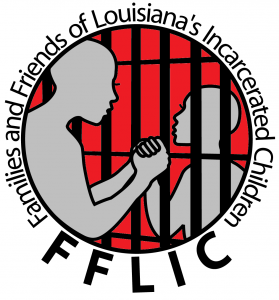Transformative Leadership Development
Transformative Leadership Development which will build a base of informed and active parents to transform oppressive systems into ones that uphold justice. Our Mission is to create a better life for our kids and Our Vision is to make the statewide organization of FFLIC strong, powerful and loving with successful outcomes in making the right changes to build each chapter’s capacity to meet needs and be as strong, powerful and loving as it can be to where we have created a statewide unity that brings the strengths of the various chapters together to enhance the organization as a whole.
In the profound and powerful words of the late Rev. Dr. Martin Luther King, Jr. “Power Without Love is Reckless and Abusive; and Love Without Power is Sentimental and Anemic. Power at It’s Best is Love Implementing the Demands of Justice.” In fact, our work is to aid in the transformation of individuals, families and communities into powerful and loving forces who can then collectively transform institutions and systems of society.
How do we create a better life for our kids? What do we need to transform oppressive systems and institutions? FFLIC believes that for us to transform systems, we need to organize for power! Organizing for power fundamentally means igniting change/ transformation in our people. We must have sufficient power to make the changes in the institutions. And just as importantly, we must have the right vision based on justice and human rights (love) to guide the institutions’ transformation. To have both POWER and LOVE, we MUST help our people transform into empowered and loving people. So, how do we ignite transformation and how do people get powerful and loving? FFLIC organizers are charged with moving people through the phases of development that we know tend to ignite and facilitate transformation.
- In order to build a broad base of families whose children are caught in the juvenile justice system and those who are at risk of becoming involved in system through unnecessary suspensions, FFLIC goes does courtroom outreach, door knocking, tabling events providing information about our organization and services.
- Parents and community members must be informed about the juvenile Injustice and education systems in order to become effective advocates for their children and children affected by the systems. FFLIC provides training for families and communities members that will arm all in attendance with the tools necessary to successfully advocate for ALL children and to develop campaigns that will transform the oppressive juvenile and education system.
Juvenile Justice Reform
FFLIC was created in response to horrifying stories of abuse and neglect in Louisiana’s secure-care facilities. Louisiana’s harsh and punitive juvenile justice system has targeted and mistreated Louisiana’s youth while leaving their families and friends powerless to help.
- FFLIC advocates for the children who are lost in the abusive juvenile justice system.
- FFLIC gives parents a voice when their children are taken from them.
- FFLIC’s is changing the practices and culture in these facilities so that they no longer mimic the adult prison system and instead provide a nurturing and rehabilitative environment for our incarcerated youth.
In 2003, after years of work, FFLIC helped pass the Juvenile Justice Reform Act of 2003 (Act 1225). This led to the closing of the notorious Tallulah Correctional Center for Youth in 2004. The Juvenile Justice Reform Act also included the creation of the Juvenile Justice Implementation Committee (JJIC) tasked with overseeing reform, added periodic juvenile placement reviews to ensure that youth are kept in the least restrictive setting, and promoted the development of nationally recognized and accepted standards of practice for local juvenile detention facilities.
FFLIC’s goal is to make Louisiana’s juvenile justice system similar to the Missouri Model. Using the Missouri Model as the base, Louisiana has agreed to transition to LAMOD (Louisiana Model). LAMOD focuses on a therapeutic, child-centered environment. LAMOD includes smaller dorm sizes, homelike environments, and training youth to be more responsible for their actions and peers. The implementation of LAMOD has been slow, but FFLIC is determined to see that the state makes the necessary changes.
FFLIC continues to monitor those in charge of the juvenile justice system to ensure that the goals of the Juvenile Justice Reform Act are met. FFLIC has regular meetings with the Office of Juvenile Justice (OJJ). During these meetings with OJJ, FFLIC voices its concerns with the current state of Louisiana’s juvenile justice system as well as the concerns and stories they gather from parents of incarcerated children. FFLIC also monitors the Juvenile Justice Implementation Committee. Thus far, the JJIC has been ineffective and has not had regular meetings.
FFLIC has formed alliances with many organizations, locally and nationally, to help aid in the fight for juvenile justice reform. FFLIC has partnered with the nationally renowned Juvenile Detentions Alternatives Initiative (JDAI) of the Annie E. Casey Foundation. FFLIC has also partnered with Justice for Families, the Campaign for Youth Justice, and the Office of Juvenile Justice Delinquency and Prevention.
FFLIC fights for the disenfranchised and those targeted by the juvenile justice system. Though FFLIC tries to work with the stakeholders in the juvenile justice system, FFLIC faces constant opposition from those unwilling to embrace change that will alter a system which is harming the youth it is required to protect.
Stopping the School to Prison Pipeline
FFLIC defines the School to Prison Pipeline as the systematic and institutional approach to depriving poor people of color a right to an equitable and quality education. This is done by pushing kids out of school through unjust suspension and expulsions, high-stakes testing, the lack of educational resources on a consistent basis, denial of special education services, lowered expectations, zero tolerance policies, and mentally preparing kids for prison by creating prison-like environments in the schools with the overuse of police and security guards.
The School to Prison Pipeline is the social phenomenon in which schools are funneling low-income youth of color into the criminal justice system. Schools are using expulsions, arrests, and alternative-school referrals as a way to rid their classrooms of “unwanted” children. The increase in out-of-school disciplinary tactics and children being incarcerated shows a correlation that proves the existence of the School to Prison Pipeline.
Louisiana ranks near the bottom in high school graduation rates and has the highest incarceration rates in the United States. FFLIC is working to reform the Louisiana school system and the juvenile justice system by dismantling the School to Prison Pipeline.
FFLIC’s campaign to stop the School to Prison Pipeline involves:
- Reducing the number of youth who are “school referred” to the juvenile justice system by reducing unnecessary suspensions and expulsions from public schools through rewriting Louisiana’s state statutes that relate to school discipline. The goal is to eliminate misuse and overuse of zero tolerance policies in the state of Louisiana’s schools.
- Organizing a Parent in Leadership Project in New Orleans which coordinates parents and schools with the use of Positive Behavior Supports in the classroom and at home.
In Louisiana children are being pushed into incarceration as a result of “zero-tolerance” policies and high school suspensions. Each year there are approximately 300,000 suspension and expulsions in Louisiana. There were over 80,000 disciplinary actions taken in the 2009-2010 school year for willful disobedience alone, a vaguely defined and arbitrarily enforced offence.
Research shows a strong correlation between harsh discipline practices, dropout and incarceration. Students with multiple suspensions are three times more likely to drop out by 10th grade than students who have not been suspended.
FFLIC’s stopping the School to Prison Pipeline Campaign will:
- train parents to advocate for their children and develop effective leaders
- create safe schools for all of Louisiana’s children by keeping kids off the streets, out of the juvenile justice system and in school where they belong
FFLIC’s 50/2017 campaign has identified and is now challenging the policies that are pushing our children out of school and hastening their entry into the juvenile–and eventually the criminal–justice system.

